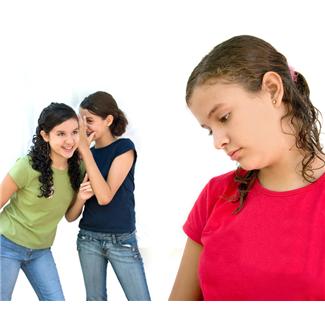Food Education: Who’s Doing It And Who’s Responsible For It?
FOOD EDUCATION; WHO’S DOING IT AND WHO’S RESPONSIBLE FOR IT? (Issue 15)
by Florence Bernard
 In my constant endeavor to understand what is going on in schools, it has been one of my big concerns to comprehend the lack of emphasis on nutrition in schools in this country.
In my constant endeavor to understand what is going on in schools, it has been one of my big concerns to comprehend the lack of emphasis on nutrition in schools in this country.
OK, I am French so I realize that I come from a culture where food has a different place. But whether you almost worship quality food or you just feed yourself, the fact remains that your body needs certain nutrients, vitamins and calories to function properly.
I can’t tell you the number of headaches that get cured by a simple glass of water in schools. Why? Because kids either forget to drink or drink sodas all day long, which not only makes them more hyper but thirstier as well. Plus, they get a buzz at the time, don’t get any hydration and actually literally “crash” an hour later.
Needless to say, this is not a very productive way to live at school. Children who are half asleep don’t exactly perform very well.
 The choice of food is also crucial. I once had a student who stopped at a well-known fast food drive through (which I won’t name to avoid any publicity!) every morning and wondered why her daughter was complaining of stomach ache every day and systematically missed the first class.
The choice of food is also crucial. I once had a student who stopped at a well-known fast food drive through (which I won’t name to avoid any publicity!) every morning and wondered why her daughter was complaining of stomach ache every day and systematically missed the first class.
Yes, fast food served in those places has nothing good for you! In case you didn’t know.
[Publisher’s Note: the marketing budgets for many fast food restaurants are vast, so the information publicized focuses on the flash and bang of selling and not the side effects of eating poorly. How do these companies generate wealth when their products cause so many negative results? They have a beautiful and systematic approach to running a business. Some have the simplest, almost fool-proof business model that can be respected from a commerce perspective. Whether these organizations have thought about how their food builds a mindset that mis-educates consumers, especially children, is an interesting topic. One would think that multi-nationals who have achieved such status would take a stand and help rather than lead the public in food myths. But that is a discussion for another day.]
I am not just talking about potential weight problems here. I am talking about energy levels, performance and moods. A lot of kids stuff themselves with chips and snacks that have no real nutrition all day long. In the end, they become aggressive because they are still hungry. If they don’t know it, their bodies do and express it.
Response and concentration levels are directly linked to nutrition and yet there is barely any effort to feed children properly. School lunches are, for the most part, lacking. School dieticians just fill kids’ stomachs and send them on their merry way.
 Worse still, very little is taught about practical, everyday nutrition. Yes, in biology class, students learn about the different food groups; they learn about carbs, fats and sugars…But kids are not taught to EAT the right way.
Worse still, very little is taught about practical, everyday nutrition. Yes, in biology class, students learn about the different food groups; they learn about carbs, fats and sugars…But kids are not taught to EAT the right way.
I don’t know why there isn’t a What Should I Eat 101 course in every high school. Or even before. And if not a program for kids, there is certainly a need for parents to learn about food. Many parents think they are doing the right thing, but how should they know? They were never educated on the topic themselves.
So as a parent and to fulfill your responsibility, it is your job as a parent to make sure that you educate yourself about nutrition. And more importantly, you have to lead by example. Kids eat what their parents give them. They crave for the treats that their parents have gotten them used to. If you start giving your kids healthy snacks when they are young, they will want healthy snacks.
Don’t listen to TV commercials. Do your own research and find out what will work for you and your family. You don’t have to make drastic changes. That probably wouldn’t work anyway. But little by little, change your diet, change your habits and let your kids follow. You will see improvements in many areas of their lives.
CONCLUSION BY DIANE GOLD
After hearing about the lack of food ed in the schools, it’s important to do something. As Florence says, not listening to commercials and doing research will help.
When will we take the step to outline what needs to be taught in the schools? Almost like a project. Then conduct Food 101 in the home, and make sure your kids are proficient enough to bring up the discussion in school. That way, they can reinforce their knowledge, pass it on and develop the education process.
FEEDBACK
Please leave your comments below and follow us on twitter: @warriorsoweight.
FLORENCE BERNARD, AUTHOR
Florence Bernard has that special way of being able to tell it like it is so that both parents and kids can benefit and follow her methods. The answer is usually in plain site.
Florence is an internationally acclaimed teacher, a parent consultant and the author of Better At School. She has developed strategies to get the best out of her students, their families and teaches them the joy of learning. You can read more about Florence on our Experts Page and get her book at: warriorsofweight.com/betteratschool.









